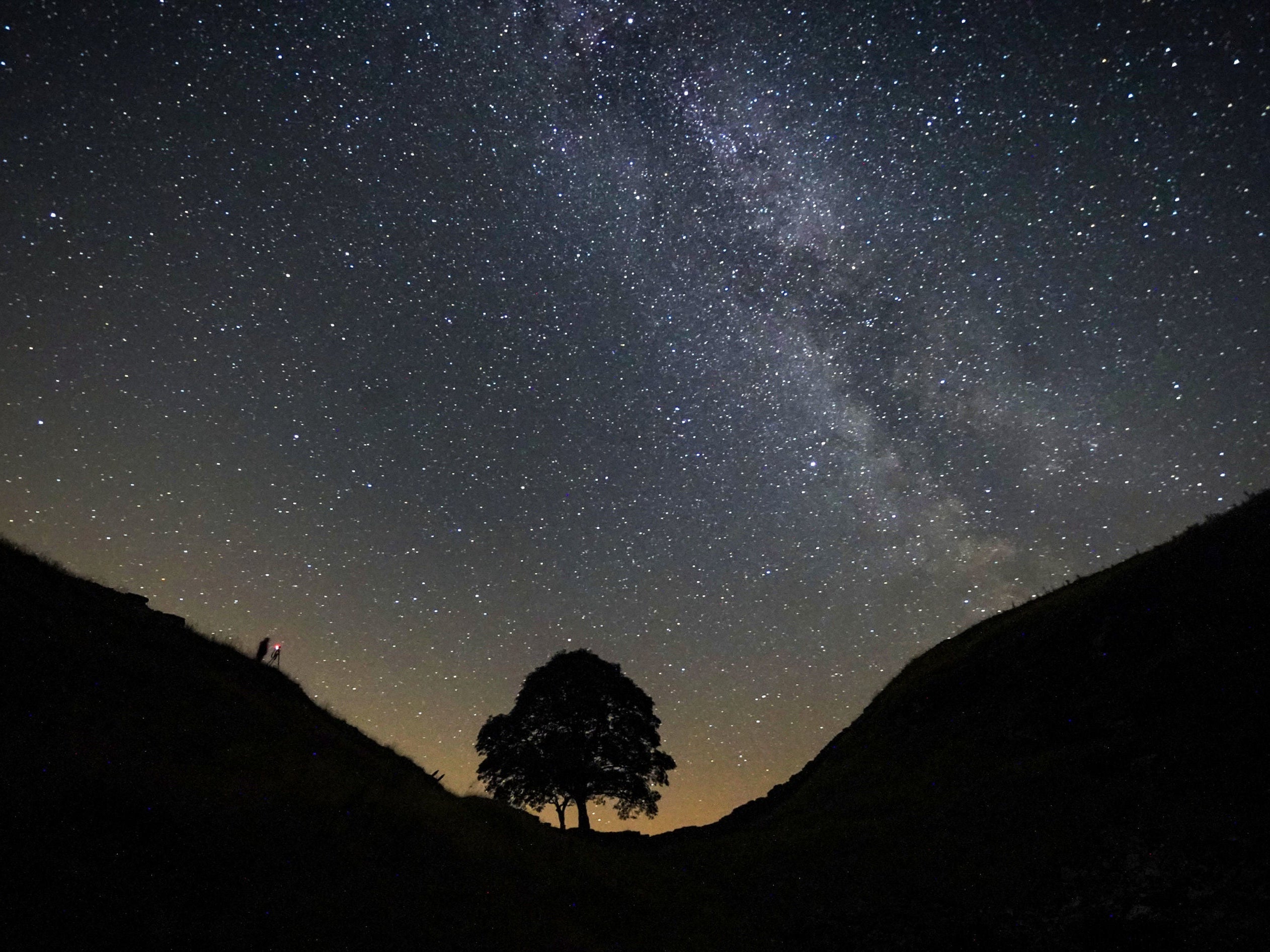UK light pollution levels significantly reduced during lockdown, nationwide star count reveals
Amateur astronomers observing Orion constellation report improvement in visibility compared with February 2020, reports Joe Sommerlad


The UK’s efforts to bring coronavirus under control appear to have led to a significant reduction in light pollution levels compared with the start of 2020, when offices and other workplaces were still open, according to a nationwide star count.
CPRE, the countryside charity, asked amateur astronomers to count the number of stars they could spot making up the Orion constellation on a clear night in February in order to gauge visibility, commenting afterwards – perhaps inevitably – that the findings were “stellar”.
The citizen stargazers taking part provided more than 8,000 results collated between 6 and 14 February, with 51 per cent of respondents noting 10 or fewer stars, an indication of severe light pollution, but this is a 10-percentage-point drop on the 61 per cent recorded in February 2020.
The results also revealed that 5 per cent of British people enjoyed truly dark skies at night, enabling them to see 30 or more stars compromising the Orion constellation, the highest figure since 2013.
CPRE attributed the drop to reduced urban activity brought about by lockdown.
Read more:
- Bitcoin mining is disastrous for the environment - it is time for governments to intervene
- Tiny minorities take most flights in countries with highest air travel emissions, report says
- ‘Cancer-causing’ chemicals found in children living near fracking well sites
- Welcome to Dunbar, Scotland’s first zero-waste town
Its survey was undertaken to coincide with International Dark Skies Week, run by the International Dark Sky Association (IDSA), which seeks to raise awareness of the impact of light pollution, a phenomenon that can harm both human and animal health by interrupting natural cycles and behaviours.
Excess energy use from lighting also contributes to climate change.
CPRE and IDSA aim to combat light pollution through national and local policy making, encouraging the use of LEDs that only illuminate pavements where people are walking and calling for lights to be switched off after hours in unoccupied office complexes.
“It’s been an absolutely stellar year for the star count,” said Crispin Truman, CPRE’s chief executive.
“We had three times as many people taking part compared to previous years and I’m delighted to see severe light pollution in the UK appears to have fallen.
“It’s likely this is an unintended positive consequence of lockdown, as our night-time habits have changed. Let’s hope we can hold on to some of this achievement as we come out of lockdown.”
He added: “Looking up at a starry night sky is a magical sight and one that we believe everyone should be able to experience, wherever they live.
“And the great thing is, light pollution is one of the easiest kinds of pollution to reverse – by ensuring well-designed lighting is used only where and when needed, and that there is strong national and local government policy.”
Ruskin Hartley, executive director of the IDSA, said: “We believe that solving the problem of light pollution begins with knowing the problem exists.
“For many people, participating in the star count during lockdown may have, for the first time in a long while, have been their first encounter with a dark night sky.”
Prior to the surprise improvement driven by the pandemic, the extent of light pollution in the UK was a regular cause for concern, with the CPRE’s Night Blight campaign in 2016 drawing attention to the fact that half of the British population could no longer see the Milky Way, our own galaxy.
Analysis by the US National Oceanographic and Atmospheric Administration looking at American military satellite pictures of light emitted from each square kilometre of land and sea around the UK revealed that severe light pollution in England had grown by 17 per cent between 1993 and 2000.
The number of rural areas enjoying truly dark skies meanwhile shrank by 27 per cent, with even counties like Cumbira and Northumberland recording a reduction.
Sir Martin Rees, the astronomer royal, commented at the time: “For many people it's a shock if they go somewhere that’s really dark, such as the Scottish Highlands, to really see the stars. But the stars are part of our environment.
“Just as I am not a bird-watcher but I would feel deprived if I couldn't hear songbirds in my garden, I think people are being deprived because they can't see the real night sky from their gardens.”
Join our commenting forum
Join thought-provoking conversations, follow other Independent readers and see their replies
Comments
Bookmark popover
Removed from bookmarks